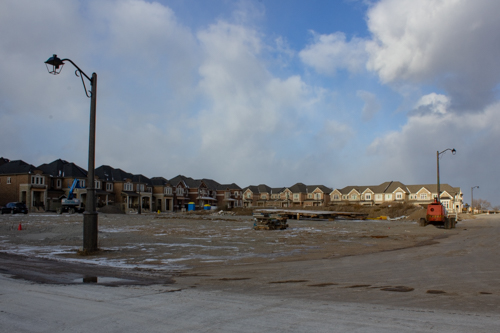
In his excellent letter to the editor, Neil Huddlestone recounts how one citizen learned the truth about who controls development in Oakville. Mr. Huddlestone learned in following the Glen Abbey development application what most residents don't realize: the ultimate planning decision-maker is the Province.
Like most of us, he started out thinking that the Mayor and Council can decide what developments are acceptable and what are not.
It's a truism in Ontario that towns and cities are "creatures of the province,": but what does that mean?
It means that the Province has the first and the final say on everything. Legally, the Province can decide tomorrow to dissolve Oakville, amalgamate it into Halton, eliminate the elected Council and replace it with appointed managers: you name it, the Province can do it.
The recent More Homes Built Faster bill currently being considered is ample evidence of the Province's absolute authority over planning and development, taking as it does more and more responsibility away from municipalities.
Further proof comes in the recent Provincial decision to expand the urban boundary of Halton. Municipalities' reactions show they are flabbergasted at this use of Provincial power. Some perceive these changes, all in the name of affordable housing, to be a boon to the development community without actually doing what is needed to meet the stated objectives: another excellent letter received by Oakville News from Pamela Knight of the Coronation Park Residents' Association, makes this case eloquently.
While the Town and Region have followed stated provincial policy to accommodate growth while reducing sprawl and approving more and more transit-supportive density, the Province has opened the door for more sprawl and higher property taxes so that existing residents will now be paying for the infrastructure needed to support the new neighbourhoods.
Of course, to stay in power, the provincial government must elect enough MPPs to form a government, and that means they care what Oakville thinks because we elect two MPPs.
Our Regional Chair and Council, and our Mayor and Town Council are essentially only the liaison between provincial policy and Town residents. They administer provincial policy. If they do what the Province wants, the Province doesn't interfere. But if there is any deviation, they can and will be overridden.
When it comes to development, Council's job is to balance provincial policies with the desires of the residents. But it must not deviate from provincial policies.
In Oakville, Town staff and Council have skillfully crafted an Official Plan, Liveable Oakville, which did conform to provincial policies, at least before the proposed changes. It manages the growth the Province requires we accept in ways that maintain the character and stability of existing neighbourhoods as much as possible. It secures parkland and infrastructure to support that growth, and it allocates its infrastructure costs to the new residents who will use it. The new proposals seriously undermine this, as reported by regional staff.
In an example of working collaboratively in the interests of residents, Liveable Oakville was unanimously adopted by Council. That means your councillors believe it represents your interests as much as can possibly be accommodated within the provincial policies it must adhere to.
At its core, it supports greater density and growth in transit-supported areas like the GO stations to provide needed affordable housing while steering density away from established neighbourhoods.
So far, it has stood the test. Developments are not approved by Council unless they conform to the plan, and the plan has stood up under developer challenges to the Province.
This is a major achievement. Few communities have managed as much resident-driven control of the form of growth as Oakville has.
In the end, the Glen Abbey case Mr. Huddleston describes never went to the Local Planning Tribunal, where the Province decides on developer challenges. We will never know if it would have gone through or not. Under pressure from residents, and in particular our Mayor and Council, the Province intervened to stop the development.
Controlling growth and maintaining the character of Oakville to the greatest possible extent requires a deep understanding of the planning landscape and the supremacy of the Province. Essentially powerless, the Mayor and Council depend on putting in place a highly competent staff to help them create a robust official plan that bridges the divide between residents' desires and provincial edicts.
Then they themselves need a supreme tactical and strategic understanding of the players involved, their individual interests and objectives. They need to be principled in the defence of our community, but they need to be pragmatic and even wily to get the best possible outcomes.
Anyone who has ever worked, as Council does, with major responsibilities and little authority, understands that achieving your objectives requires using every legal tool possible, but also cajoling, horse trading, and compromise: skills that are honed with experience, by winning and losing battles on different fronts. That experience does not have to be gained only in the government arena but must be gained somewhere.
Once every four years, we are asked to evaluate their performance and the skills, character, judgement, and experience of alternative candidates. On Oct. 24, you elected the people who will try to stickhandle between the wishes of the Province, developers, and residents. The future of our town depends on their skill. (Yet only 28% of us did our civic duty.) By all means, write to your Mayor and Council and make clear where you stand on proposed legislation and proposed planning projects. But make sure you also write to your MPP because that is where the control over planning really lies.